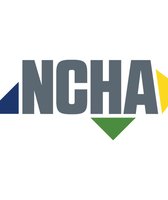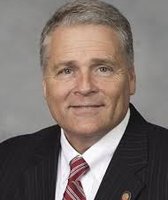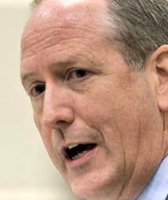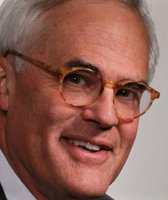Stand up for the facts!
Our only agenda is to publish the truth so you can be an informed participant in democracy.
We need your help.
I would like to contribute

President Donald Trump gestures to the crowd as he arrives to speak at a campaign rally at Williams Arena in Greenville, N.C., Wednesday, July 17, 2019. (AP)
President Donald Trump often talks about the thriving economy as a benefit of his presidency, and last week’s rally in Greenville was no different.
"North Carolina has had its best economic year in the history of your state," he said in his speech.
There is no doubt that North Carolina’s economy is thriving. In 2018, Forbes Magazine named North Carolina the state with the best economy for business for the second year in a row.
When asked what Trump was referencing, a spokesman for his campaign, Zach Parkinson, gave a list of economic indicators showing North Carolina’s success.
While it is true that North Carolina’s economy seems to be doing well, we decided to check Trump’s statement because it attempts to put recent success in historical context.
Economists are constantly debating whether a state’s growth is a result of the federal government, the state legislature or simply trends in the economy. So we won’t assign credit for North Carolina’s economy. We also won’t give this check a Truth-O-Meter rating, since there are multiple ways of measuring a state’s economy.
Instead, we’ll explain the most common methods for measuring an economy, and look at how North Carolina has fared over time.
The Gross Domestic Product, or GDP, is generally considered by experts to be the most comprehensive way to measure an economy and compare it to past years. However, GDP can be measured in different ways.
"I think one could make the argument the president is making and one could also make the counterargument," said Adam Jones, professor of economics at UNC Wilmington.
Is NC’s GDP growth historic?
One factor Trump may have based his claim on is North Carolina’s total GDP, which reached a high of $565.8 billion in 2018. The total GDP was higher last year than ever before. But, since GDP is tied to population growth and the trends of the economy, that claim is common sense and is, in a sense, redundant, said Michelle Connolly, professor of economics at Duke University.
"Total GDP will always be highest in the most recent year if there hasn’t been negative growth for a while," Connolly said. "...Excluding a strong recessionary period in a state -- this is a statement (that) is probably always true."
Experts agreed that the most telling way to measure GDP is to calculate its growth over time, not just the total. This is because this method accounts for population growth and positive growth trends in the economy.
Michael Walden, professor of economics at North Carolina State University, said North Carolina’s GDP growth rate in 2018 was 2.9%.
Now it’s time to see how Trump’s claim holds up with the data. Trump claimed that North Carolina had its "best economic year in the history of your state."
"Even just looking at 2015 to 2018. Real GDP growth in NC was 2.9% in 2018, which is higher than the previous two years, but not as high as 2015 when it was 3.1%," Connolly said in an email interview.
The highest GDP growth rate in the state was in 1984, when it was 8.6%, Walden said.
Other markers of the economy
Although GDP growth is considered to be the standard for measuring the economy, there are other ways to gauge the economy that could have factored into Trump’s claim.
Some other key measures that factor into a "report card" on the economy are median income, percentage of people below the poverty line, unemployment rate and the percentage of homeownership. However, a lot of that data has not been released yet for 2018.
In order to have the highest median household income, North Carolina would have to beat its 2008 peak of $53,127. That seems likely since the median household income in 2017 was $52,752 and expected to grow 2.51%, to $54,076, by 2018, according to the American Community Survey. The ACS will release the 2018 numbers in September.
Poverty statistics for 2018 have not yet been released, but overall, 14.7% of North Carolinians were below the poverty line in 2017, and the number is expected to follow a downward trend for 2018. This is an improvement over recent years -- the poverty level in 2012 was 18%. However, it is not yet the lowest poverty rate in the history of the state, which approached 12% in the early 1980s, according to a statistic from the UNC School of Law.
There is information on North Carolina’s unemployment rate throughout 2018 and 2019.
"The North Carolina unemployment rate in 2018 reached a low during some months of 3.7%. The lowest unemployment rate in the state in the last 40 years was 3.0% in early 1999," Walden said.
Homeownership in North Carolina was down to 65.2% in 2018, a decrease from 66.3% in 2017 and the state’s lowest ever, according to the U.S. Census Bureau. The highest percentage of homeownership in North Carolina was in 1999, when 71.7% of North Carolinians owned homes.
Was North Carolina’s economy the ‘best’?
Trump said, "North Carolina has had its best economic year in the history of your state."
In some measures, the economy has experienced historical growth. In the past year, the state’s total GDP was the highest ever. Other areas, such as GDP growth, unemployment rate, homeownership, percent of people in poverty and median income, are doing well, but they are not historical.
It should be noted, however, that a president cannot bear full responsibility for the economy, whether it is doing well or poorly. Economists say that there are a myriad of factors from business to demographic shifts which play into the economy that cannot be traced back to one single thing or person.
The claim that the economy is doing historically well is not new. PolitiFact last year fact-checked several of Trump’s claims about the economy. It’s almost guaranteed to show up in the 2020 election cycle, both on the state and the federal levels, so keep an eye open for more PolitiFact checks on similar claims.
This story was produced by the North Carolina Fact-Checking Project, a partnership of McClatchy Carolinas, the Duke University Reporters’ Lab and PolitiFact. The NC Local News Lab Fund and the International Center for Journalists provide support for the project, which shares fact-checks with newsrooms statewide. To offer ideas for fact checks, email [email protected].
Our Sources
"The Best States for Business in 2018: North Carolina Leads" the Way by Kurt Badenhausen, November 28, 2018.
Email interview with Adam Jones, a professor of economics at UNC Wilmington, July 18, 2019, July 8, 2019.
Email interview with Michael Walden, professor of economics at North Carolina State University.
Email interview with Michelle Connolly, professor of economics at Duke University, July 22, 2019.
Homeownership rate for North Carolina by the Federal Reserve Bank of St. Louis.
"NC Economy a Mixed Bag" by Will Doran and David Raynor, October 8, 2016.
"N.C. Poverty Statistics" by UNC School of Law.
"North Carolina Household Income" by the Department of Numbers.
Regional Data on GDP and Personal Incrom from the Bureau of Economic Analysis.



























